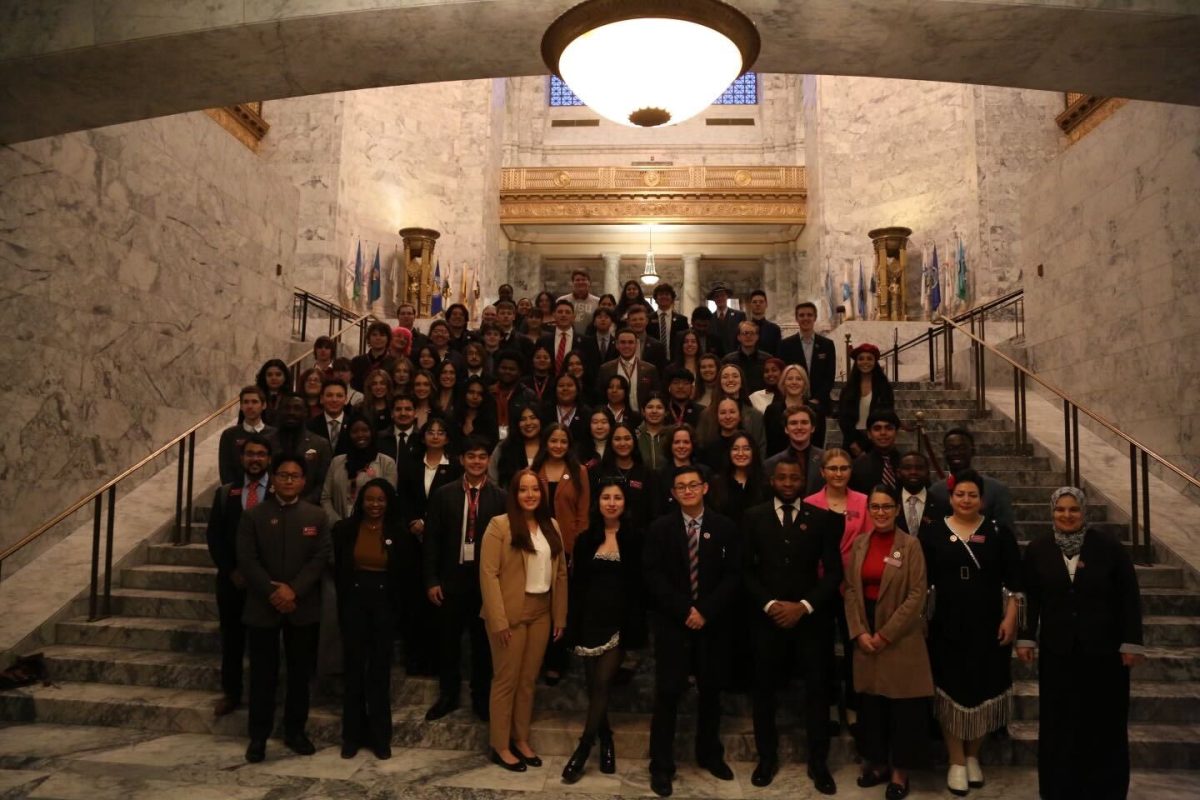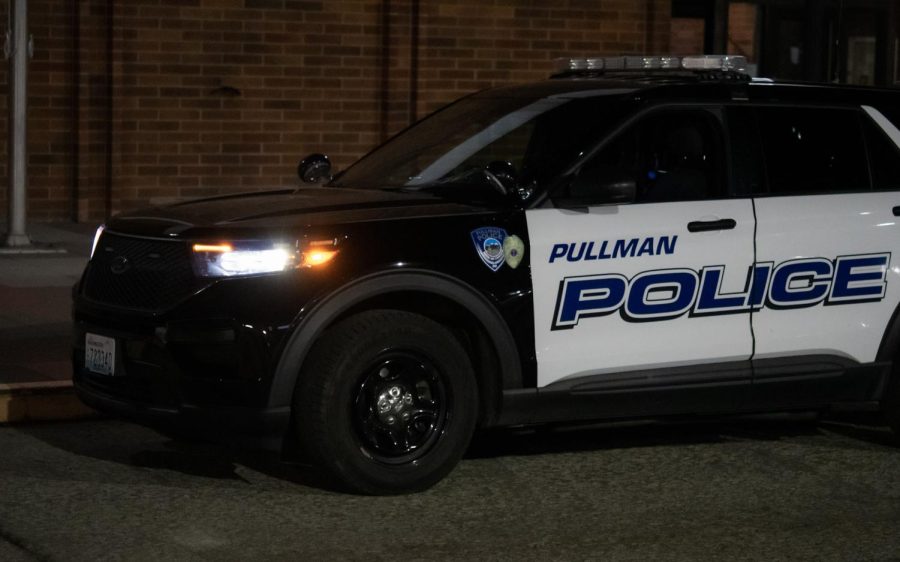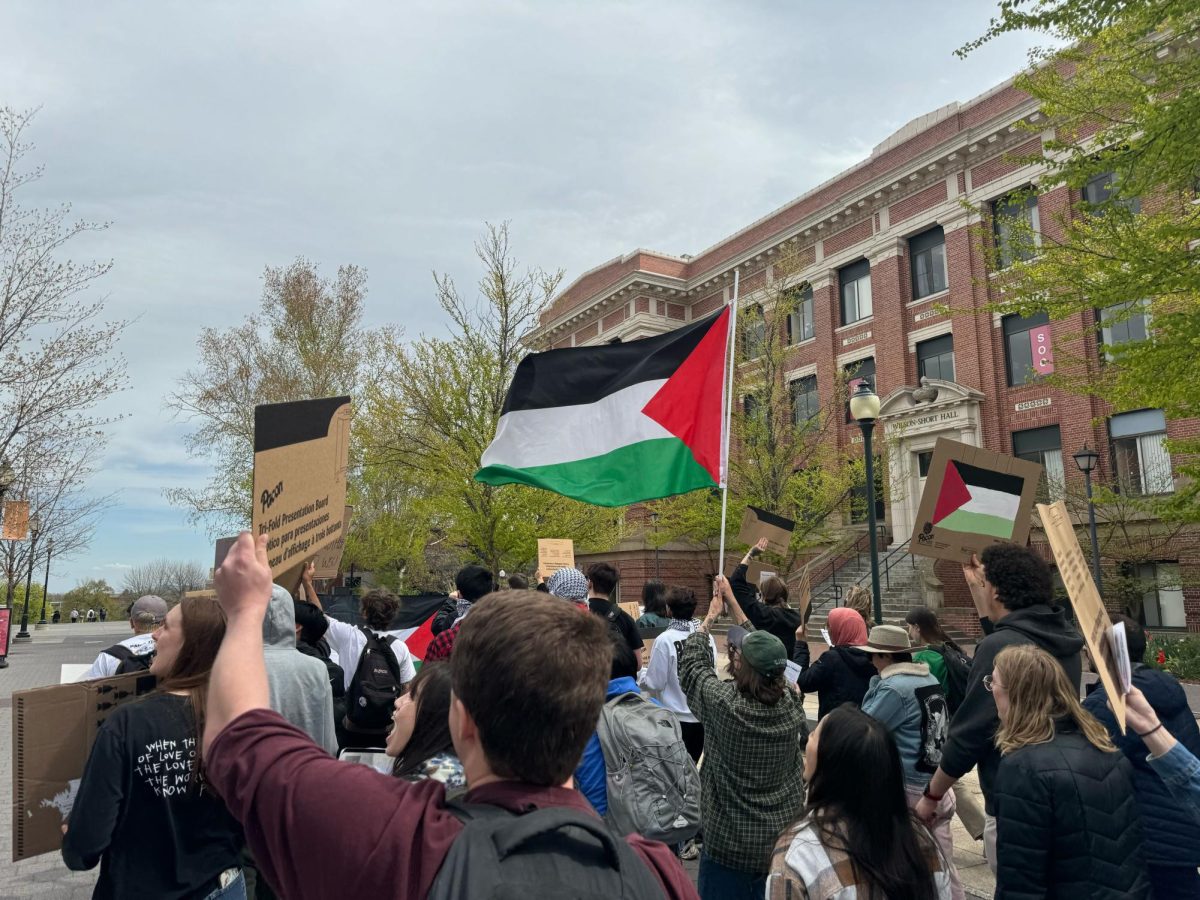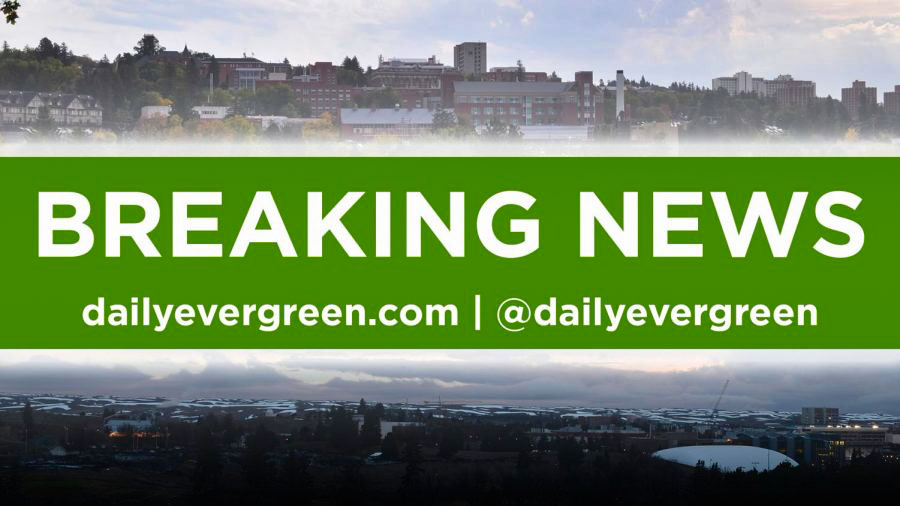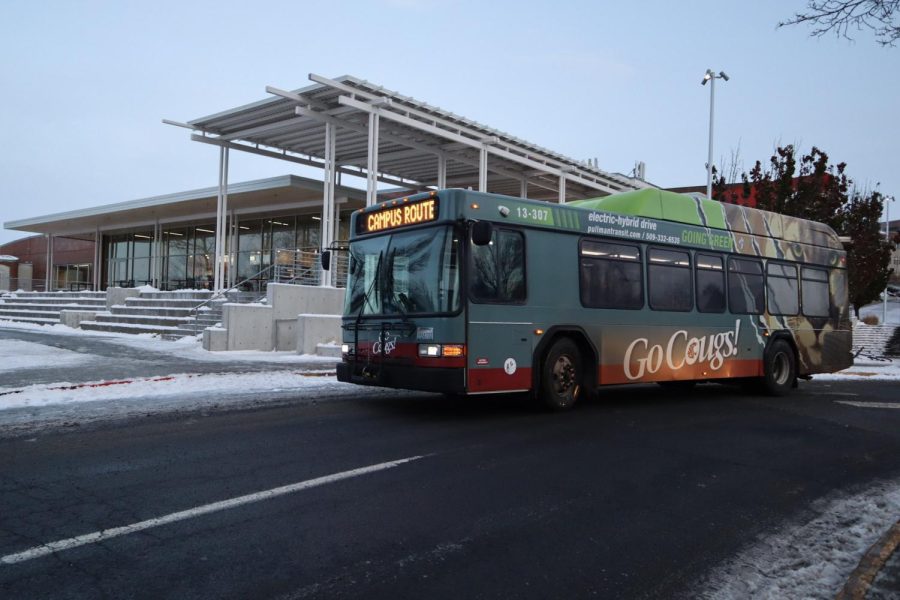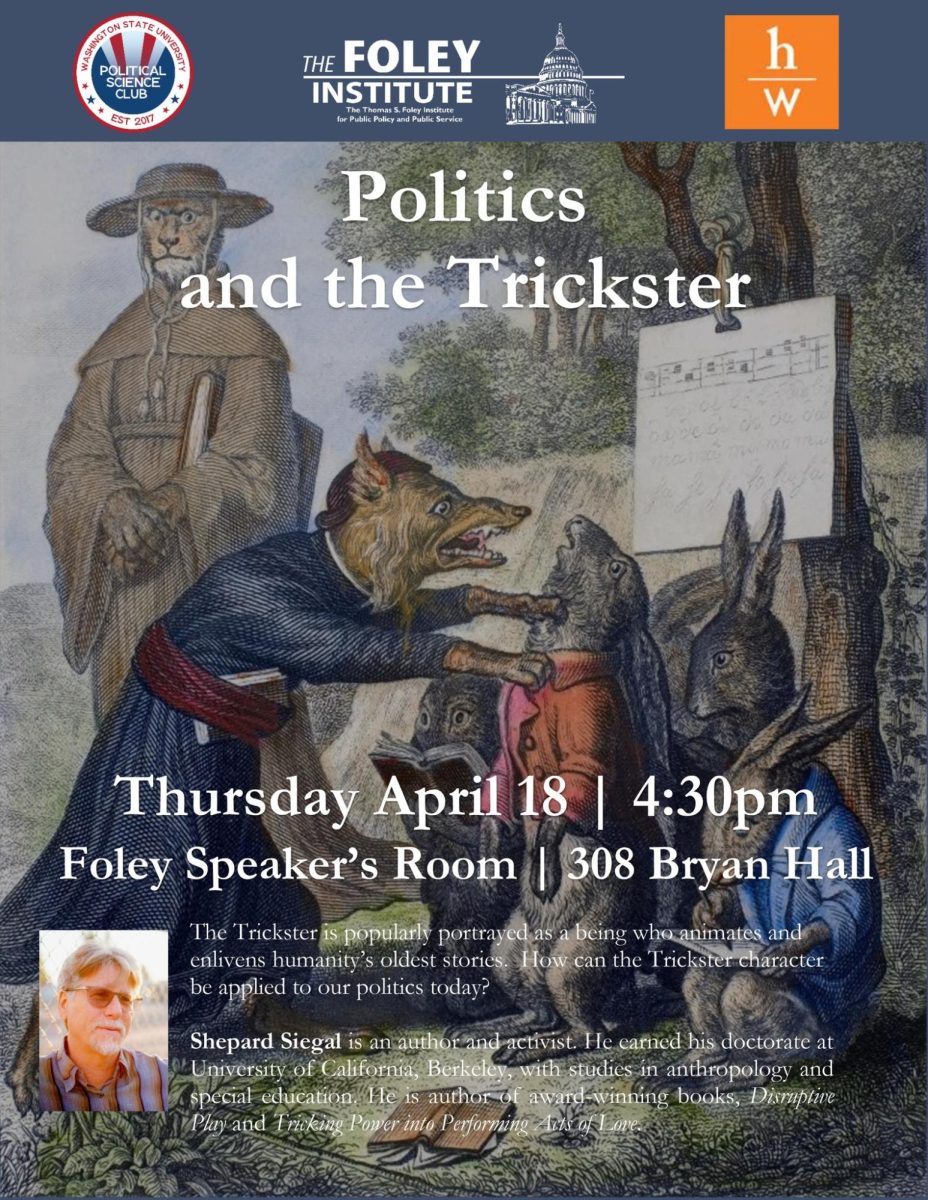Editor’s note: Sheridan Robbins is a member of the ASWSU lobbying team. This is not a factor in the story’s content
Eighty-one WSU students from the Pullman, Global, Tri-Cities and Vancouver campuses traveled to the Washington State Capitol in Olympia to lobby in front of Washington State’s legislature Monday.
The students were led by Collin Bannister, ASWSU legislative affairs director and second-year philosophy and political science pre-law major. After training consistently throughout the semester, the team met with legislators, the Secretary of State and the Washington State Treasurer to discuss the upcoming 60-day voting session.
“Washington State’s budget operates in a biennium. At the start of each Biennium, it is called a budget year which is where they allocate funding. That was in 2023,” Bannister said. “Now in 2024, we have entered the second half of the biennium which is referred to as a short session. There are fewer days to pass policy and generally a lot less money.”
Students were broken into groups of four and five on the morning of Jan. 22. Each group was assigned a handful of legislators or their legal assistants to talk to throughout the day. The students were able to get feedback and answer questions from the legislators concerning the bills.
Students advocated for a total of six provisions to the budget that are believed will have a positive impact on WSU undergraduate and graduate students.
Such provisions include extending the Washington State College grant, which would increase the threshold of eligibility. This provision, House Bill 1559 by Rep. Debra Entenman, D-Kent, would ensure that more students would qualify for funding to attend a four-year university.
The students also lobbied for The Basic Needs Act Provision, which would give funding to WSU’s basic needs navigator, allowing them to be full-time employees and dedicate more time and resources to attending to students’ basic needs such as housing, food, and health.
The university also wished to acknowledge that a student’s mental health qualified as a basic need. Along with the Basic Needs Act provision and the Washington state’s college grant, the student lobbying agenda also worked to support bills HB 2114 by Rep. Emily Albarado, D-Seattle, and Senate Bill 5961 by Sen. Yasmin Trudeau, D-Tacoma. These companion bills seek to cap rent increases to five percent annually.
The lobbying group expressed to legislators the positive impact this would have on students, as rent is a very high expense for college students who may not have the financial stability to cope with the rising cost of living.
The lobbying team also went to support bills HB 2101 by Rep. Alicia Rule, D-Blaine and SB 6038 by Sen. Claire Wilson, D-Auburn, which would remove the requirement for childcare providers to pay licensing fees. The hope of this bill is that it would make becoming a childcare provider more accessible and lead to students with children having more affordable childcare options.
The last two bills worked to support minority students at WSU. The student lobbying team sought to get support for extending funding for the Native American Scholarship. allocating $2.8 million to the Native American Scholarship, which currently 100 WSU students have utilized. The last bill supported by WSU was HB 1889 by Rep. Amy Walen, D-Kirkland, which if passed, would allow undocumented people the ability to apply for and receive professional licenses required for employment.
With Coug Lobbying Day over, the next step in the process is to wait to see how the legislature votes on them. Those hoping to track progress on these bills can visit the Washington State Legislature website.









